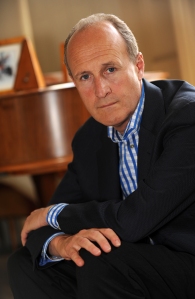This week has seen Arts Council England’s chairman Sir Peter Bazalgette address the gap in arts education between students educated in private schools and state schools.
Bazalgette, speaking to The Stage, raised his concerns about the marginalisation of the arts for state school students: ‘I can’t see why 7% to 9% of the population who go to private school should have a fantastic and privileged education in the performing arts, and why it’s being marginalised in state schools. When you see BAFTA [awards] coming around and three of the actors nominated are from Eton you think, great for them, they are wonderful actors, but something odd is going on here. Why is that happening?’
Eton College has produced actors such as Damian Lewis, Dominic West, Tom Hiddleston, Eddie Redmayne and Harry Lloyd. Other privately educated actors include Benedict Cumberbatch, Hugh Bonneville, and Rory Kinnear.
Bazalgette suggested that one of the possible routes to remedy the issue would be through Ofsted: ‘When it is inspecting schools, [Ofsted] should not be allowed to give any school an “excellent” rating unless it has a very good offering in performing and visual arts for its pupils.’
Speaking at Sheffield’s international documentary festival Doc/Fest, Bazalgette added to his comments: ‘Seven per cent of the population go to private schools, and in those private schools they get an absolutely, crackingly good education in the performing and visual arts. Ninety-three per cent don’t go to those private schools and, in some state schools, people get a wonderful education in visual and performing arts as well. But in quite a lot of them they don’t.
‘Visual performing arts have been marginalised in some areas in the curriculum as the curriculum becomes more instrumentalist and focused on what’s known as the Stem agenda – science, technology, engineering and maths. If there is one message, we say Steam, not Stem – put the “a” for arts in.’

